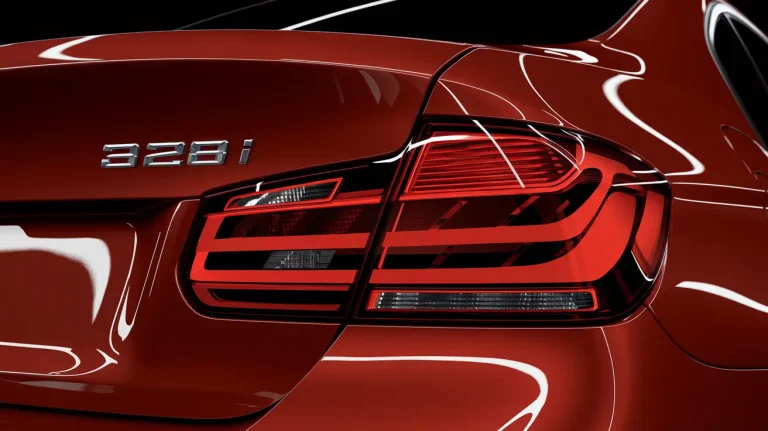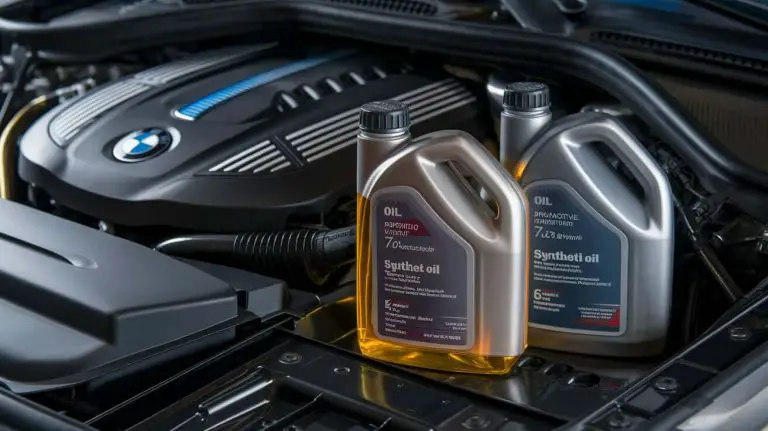Is BMW Considered JDM? The Ongoing Debate Explained
The world of imported Japanese domestic market (JDM) cars has exploded in popularity in recent years. But does this trendy tuner category include German luxury brands like BMW?
There’s an ongoing debate among enthusiasts about whether certain BMW models can qualify as JDM. This controversy circles around the true definition of JDM and the rising presence of BMW in Japanese car culture.
So does BMW’s place in drifting contests and showcases warrant JDM status? Or is the roundel-badged Bavarian brand antithetical to the ethos of these quirky Japanese imports?
This article will examine the arguments on both sides to help settle the debate over BMW’s disputed JDM designation. We’ll also overview what exactly JDM means and why this label holds so much sway among auto aficionados.
What Does JDM Stand For?
First, let’s start with a definition of this disputed term. JDM simply stands for Japanese Domestic Market.
In plain English, JDM refers to vehicles that were:
- Designed and manufactured specifically for sale in Japan
- Built to comply with Japanese vehicle regulations
- Sold new exclusively in Japan
The key distinguishing factor is that JDM cars were never officially exported or sold new in other markets. That exclusivity and forbidden fruit factor drives much of their appeal.
This definition is focused on the vehicle’s origin and intent during production, not just the country of manufacture. For example, a Toyota built in Japan but designed for the US market would not qualify as JDM.
And the JDM designation has no direct connection to the automaker’s country. So vehicles from American, German, or other foreign brands could potentially qualify if they meet the criteria.
What Makes a Car JDM?
For a car to be considered JDM, it must have been:
- Built in Japan specifically to comply with Japanese vehicle regulations and standards
- Designed for Japanese road conditions and buyer preferences
- Sold new exclusively at Japanese dealerships
The key factor is the original target market during production. Just being built in Japan does not automatically make a car JDM.
For example, the R35 Nissan GT-R supercar was built in Japan but intended for global export from the start. So most car experts would not consider it a true JDM model.
On the flip side, low-volume specialty BMW models tailored specifically for the Japanese market could have a stronger claim to JDM authenticity.
Brief History of BMW
BMW, which stands for Bayerische Motoren Werke (Bavarian Motor Works), has its roots in aircraft engine manufacturing dating back to 1916. The German company started producing motorcycles in the 1920s and eventually cars in the 1930s.
Over the decades, BMW cultivated a reputation for building high-performance luxury vehicles that emphasize driving enjoyment. Iconic models like the 2002, 3-Series, and M5 cemented the brand’s status around the world.
While founded and headquartered in Germany, BMW operates factories in several other countries including the United States, China, and others.
Popularity of BMW in Japanese Car Culture
Despite being a foreign make, BMW gained popularity in Japan’s thriving enthusiast car culture. Models like the E30 3-Series became favorites for drift builds.
Lightweight, rear-wheel drive BMWs provide an accessible and tuner-friendly platform to create customized drift machines. The smooth inline six-cylinder engines can also produce plenty of power.
Other recent BMW models like the 1 Series M Coupe have also attracted the attention of Japanese enthusiasts. These limited-production vehicles offer coveted performance upgrades in a compact package.
So while not purpose-built for Japan, various BMWs have carved out a niche in the drifting and modification scene. Their representation in Japanese car culture seems disproportionate to the brand’s actual local sales.
Arguments For BMW Being JDM
Given BMW’s German origins, how can any models qualify as JDM? Here are some of the arguments in favor:
- Select models built exclusively for Japan – While the bulk of BMW production targets global markets, some special editions like the E46 M3 CSL were sold only in Japan. The low volumes and Japan-specific design does conform somewhat to JDM principles.
- Right-hand drive production – Building cars with right-hand drive (RHD) specifically tailored to the Japanese market is an attribute often associated with JDM status. BMW has offered some performance models like M3s in RHD configuration for the Japanese market.
- Strong presence in drifting culture – BMW’s reputation among grassroots drifting enthusiasts and importance in the racing scene could outweigh its corporate origins. The connection to Japanese motorsports culture suggests a JDM-like role.
- Vintage models’ collector value – Older BMW classics like the 2002 have undeniable collector cachet in Japan. The scarcity and appreciation by Japanese enthusiasts make them similar to sought-after JDM legends.
Arguments Against BMW Being JDM
However, there are also strong cases against BMW’s inclusion under the JDM banner:
- German brand, not Japanese – JDM purists argue the origins and corporate identity must be Japanese. By that measure, all BMW models would be disqualified regardless of Japanese popularity or specs.
- Limited niche models only – Aside from a handful of special editions, most BMW models are designed primarily for global export from the start. The tiny JDM niche does not override the broader brand image.
- Perceived as luxury, not tuner cars – In terms of branding, BMW leans into premium luxury associations. In contrast, JDM vehicles are aligned with affordability and tuner culture.
- Never a major Japan market player – While enjoying racing subcultures, BMW has minimal mass market presence in Japan. Mainstream acceptance would further cement JDM qualifications.
Why This Debate Matters
Why does it matter whether BMW gets included under the JDM umbrella? Here are some of the reasons this labeling carries importance:
- Impacts collector values – Being considered JDM can significantly increase a car’s resale value and collector interest. The legitimacy of the designation impacts BMW models’ standing.
- Availability of parts – Sourcing repair components for JDM vehicles can be trickier due to limited local production. Classifying BMWs this way would affect parts supply.
- Cultural significance – As JDM cars gain recognition as touchstones of Japanese auto achievements, the accuracy of the designation carries weight.
- Enthusiast credibility – Among serious JDM fans, authenticity counts. So there’s pushback against widening the definition to include brands like BMW.
As Japanese domestic market cars continue growing in popularity worldwide, clarity around the meaning of JDM becomes more relevant.
Examples of JDM BMW Models
Assuming some BMW models could qualify for JDM status, which specific cars would make the cut? Here are a few prime candidates:
BMW E46 M3 CSL – The limited-run E46 M3 CSL was built in 2004 exclusively for the Japanese market. Only 138 examples were produced, each featuring racing-bred upgrades like a carbon fiber roof and hardcore suspension.
BMW 1 Series M Coupe – This rare 2012 model packed a 335-horsepower turbocharged inline 6 in a compact, lightweight 2-door body. Japan was one of few markets to receive the 1M Coupe, further cementing its JDM eligibility.
BMW E31 8 Series – Sold from 1991-1999, the E31 850i coupes and convertibles were Japan-only special editions with unique upholstery, paint, and features. Their RHD configurations and exclusivity strengthen the JDM claims.
BMW 2002 Turbo – The range-topping 2002 Turbo debuted in 1973 and was officially imported to Japan, where it gained cult status. As one of BMW’s earliest performance flagships, the 2002 Turbo possesses JDM pedigree.
These low-volume specialty models made specifically for the Japanese market come closest to qualifying as true JDM cars.
What Makes JDM Cars Special?
Beyond the debate around specific BMW models, it’s also informative to examine the broader appeal and specialty of JDM vehicles. Here are some of the factors that make JDM cars unique:
- RHD configurations – The right-hand drive setup offers a novel experience for those accustomed to left-hand drive cars. It also provides a sense of cultural immersion in Japanese vehicles.
- Exclusivity – With JDM cars never being mass distributed outside Japan initially, finding one locally feels rare and exotic. Their forbidden fruit factor drives interest.
- Performance – Japanese automakers often save their most cutting-edge performance tech for domestic models only. That gives JDM cars an edge in power and engineering.
- Reliability – Japan’s meticulous craftsmanship gives JDM cars a reputation for reliability. With scrupulous maintenance, high mileages are achievable.
- Aftermarket support – An abundant ecosystem of tuner parts exists in Japan to customize JDM cars. This facilitates pushing limits through modifications.
- Motorsports legacy – Many JDM models like the Skyline GT-R and Supra were bred on the racetrack. Their pedigrees reflect generations of motorsports success.
Conclusion
So where does this leave the debate around BMW’s controversial JDM status? There are indeed fair arguments on both sides.
While BMW as a corporate entity clearly falls outside the parameters of being a Japanese brand, select models do share some DNA with JDM cars.
The handful of Japan-exclusive editions connect with the enthusiast culture enough to consider them at least honorary JDM selections. And the prominence of certain BMW chassis like the E30 in drifting circles highlights the blurred lines.
But overall, the vast majority of BMWs cannot qualify for true JDM status based on their design and distribution. The judgment of most ardent JDM fans remains that BMW is ultimately a German import.
Yet even if not literal JDM, BMW’s importance among Japanese tuners and collectors cannot be denied. The brand has carved out its own unique niche in the evolving landscape of Japanese car enthusiasm.
So while perhaps not fully settled, the verdict on BMW’s place looks to acknowledge its contributions without overstating its JDM qualifications. BMW’s role should likely be framed as an influential guest to the Japanese domestic party rather than a dedicated member of the JDM family.







